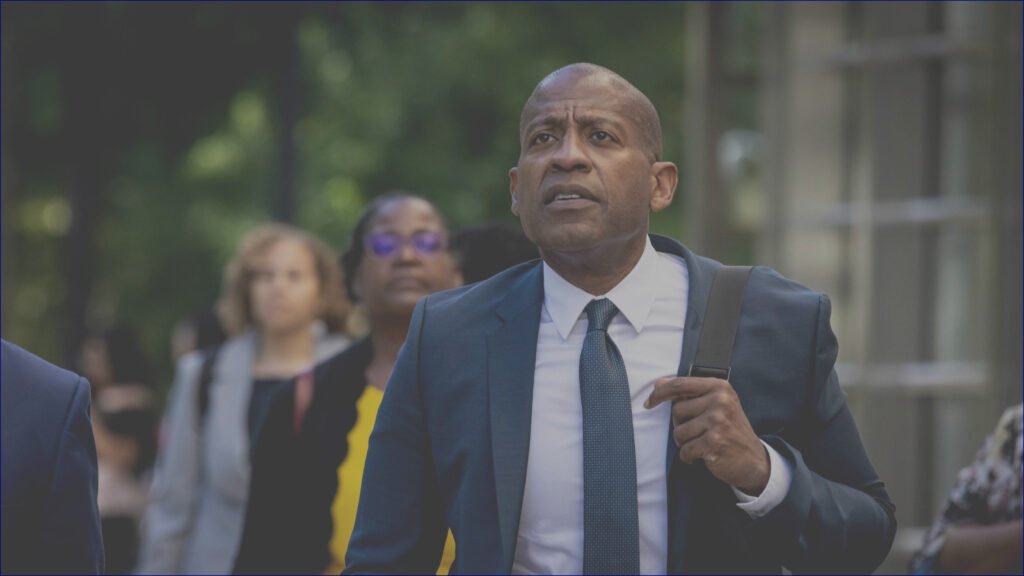NEW YORK — In a dramatic turn of events echoing the turbulent world of startup culture, former talk show host Carlos Watson has been sentenced to just shy of a decade—ten years, to be precise—in a federal financial conspiracy case that has drawn the spotlight on his once-promising venture, Ozy Media. Yes, the very same Ozy that captivated investors and audiences alike, now ensnared in a web of deceit and inflated promises.
The case has been described as an archetype of the “fake-it-’til-you-make-it” ethos, with a narrative so implausible that it included an Ozy executive masquerading as a YouTube official, all while Watson orchestrated behind the scenes, coaching him in the art of deception. Prosecutors outlined a sordid tale wherein Watson and his now-defunct media empire were found guilty last summer of a myriad of charges, including—most notoriously—wire fraud conspiracy.
Watson, who staunchly maintains his innocence, intends to mount an appeal. “I poured my heart into Ozy,” he implored in court, his voice a mixture of defiance and regret as he momentarily acknowledged the audience, only to be gently redirected to the judge. In a pointed statement, he decried what he perceived as “selective prosecution,” asserting that as a Black entrepreneur in the high-stakes realm of Silicon Valley—a space notorious for its lack of diversity—he had become a target. The gravity of his situation led him to liken the proceedings to “a modern lynching.”
“I made mistakes. I’m deeply, deeply sorry that people are hurt, myself included,” he lamented, yet insisted, “I don’t think it’s fair.” Facing a spectrum of sentencing—anywhere from two to a staggering 37 years—Watson currently remains at liberty, buoyed by a $3 million bond, but he must prepare to surrender to custody in the not-too-distant future.
Prosecutors revealed the depths of deception that permeated Ozy’s façade, alleging that Watson was a linchpin in a scheme designed to defraud potential investors by showcasing inflated revenue figures, conjuring nonexistent deals, and presenting other illusory indicators of success. Evidence suggested Watson was actively engaged in this charade, even texting talking points to a co-founder posing as a YouTube executive during calls with unwitting investors.
In a somber courtroom, U.S. District Judge Eric Komitee characterized the deceit as “exceptional,” admonishing Watson that “your internal apparatus for separating truth from fiction became badly miscalibrated.” The judge’s declaration underscored the gravity of the transgressions at play.
During the trial, Watson’s defense sought to deflect culpability, pointing fingers at co-founder Samir Rao and former chief of staff Suzee Han, both of whom have pleaded guilty and are awaiting their own sentences. Watson donned the role of a beleaguered entrepreneur, claiming he had invested all he had into Ozy, drawing a modest salary of around $51,000 in its final years while mortgaging his home to keep the operation afloat.
Ozy, established in 2012, once basked in the glow of recognition as a modern media hub aimed squarely at millennials. Watson himself boasted an impressive pedigree: credentials from Harvard and Stanford, seasoned on Wall Street, and a broadcast presence on platforms like CNN and MSNBC. His entrepreneurial journey was notable, launching Ozy as a reinvention a decade after selling a previous enterprise.
As Ozy flourished, it produced a tapestry of content—TV shows, podcasts, and a much-lauded music-and-ideas festival. Yet beneath the shimmering surface, insiders painted a picture of a company spiraling toward insolvency post-2017, struggling to make payroll and reliant on costly cash advances just to remain operational.
The narrative reached a climax in July, when Watson stood on the witness stand, proclaiming that the cash flow crises were mere growing pains typical of a startup and that investors were fully cognizant of the hypothetical numbers being tossed around.
Among the litany of investors was his sister, Beverly Watson, who remained steadfast in her belief in her brother, lamenting the loss of an “important platform that elevated people and ideas that weren’t being heard before.” Conversely, the judge recounted a different sentiment from another investor, who expressed feeling misled and betrayed by Watson’s actions.
The story of Ozy came to a crashing halt in 2021, ignited by a New York Times exposé that laid bare the impersonation tactics and cast a long shadow over the legitimacy of the startup’s claims about its audience. The verdict delivered in this case reverberates as a stark reminder of the fine line between ambition and duplicity in the relentless race of the entrepreneurial world.

